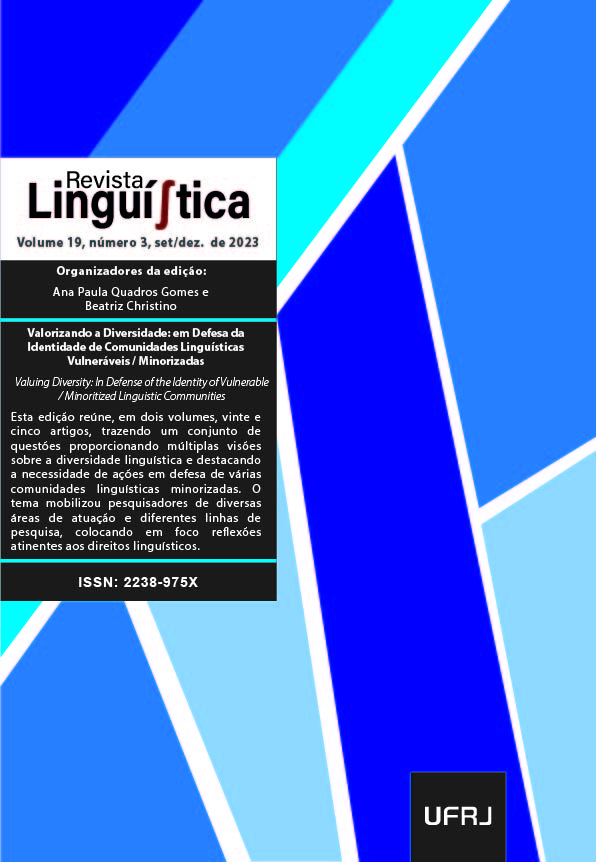The linguistic context of the traditional communities of terreiro
DOI:
https://doi.org/10.31513/linguistica.2023.v19n3a60417Keywords:
Atos de fala. Comunidades. Linguagem. Performatividade. Tradição oral.Abstract
This paper addresses the linguistic context of traditional terreiro communities (CTTro), especially Candomblé, which establishes a relationship with the historical context and the internal rites of religion as a linguistic form of resistance through orality (Hampatê Bâ, 2010) given the process of colonization in Brazil that had the effect of annihilating African traditions in the diaspora (Vansina, 2010). The interaction through orality translates or models the type of behavior that the community establishes from the cultural values that were received. The studies of speech acts developed by Austin (1990) allowed the analysis of some terreiro practices as a performative action. Language as action is considered performative, whose effects mark lives and the social world and, often, their conscious intentions (and pretensions) (Rajagopalan, 1996). It is considered that the performative acts through the ritualistic processes of the CTTro, link us to an ethics, ancestry and African-black identity, insofar as it is in these spaces that the cultural cement that unites the diverse elements of a people through the feeling of historical continuity lived by the whole of its community (Munanga, 2020).
Downloads
Downloads
Published
Issue
Section
License
Copyright (c) 2024 Revista Linguí∫tica

This work is licensed under a Creative Commons Attribution-NonCommercial 4.0 International License.
Authors who publish in the Revista Linguí∫tica agree with the following terms:
The authors maintain their rights, ceding to the journal the right to first publication of the article, simultaneously submitted to a Creative Commons license permitting the sharing with third-parties of published content as long as it mentions the author and its first publication in the Revista Linguí∫tica.
Authors may enter into additional agreements for the non-exclusive distribution of their published work (for example, posting in online institutional or non-profit repositories, or book chapters) so long as they acknowledge its initial publication in the Revista Linguí∫tica.

The journal Revista Linguí∫tica is published by the Post-Graduate program in Linguistics of UFRJ and employs a Creative Commons - Attribution-NonCommercial 4.0 International (CC-BY-NC).









